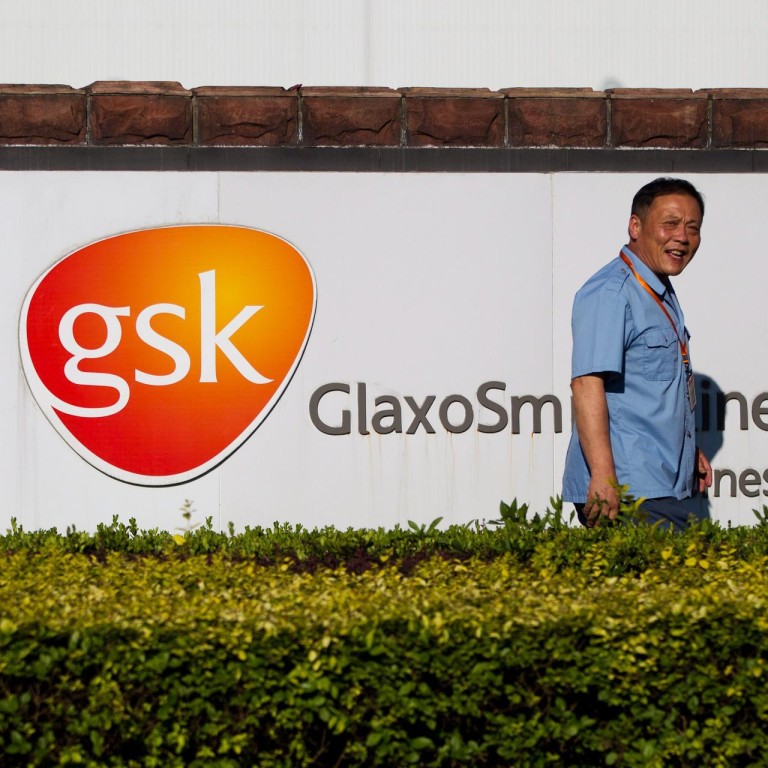
Drug firms suffer in China over GlaxoSmithKline bribery probe
The British company says the mainland media has created a frenzy that has many buyers wary of dealing with multinational drug producers
Sales of GlaxoSmithKline (GSK) and other drug firms have suffered from the mainland investigation of suspected corruption at the British firm and other drug multinationals, GSK chief executive Andrew Witty said yesterday.
"The media in China has created an anxiety which has led to some disruption in the business," Witty said. "Several other companies have been affected. We're not the only company to see a slowdown in sales in China."
Witty did not name any of the other companies affected.
GSK's sales on the mainland plunged 61 per cent year on year in the third quarter.
Its sales in what it calls the emerging markets and Asia-Pacific region fell 9 per cent to £1.07 billion (HK$13.3 billion), while operating profit dropped 22 per cent to £283 million. If not for China, sales in the region in the third quarter would have grown 5 per cent, Witty said.
"Operations in China were clearly disrupted in the third quarter," he said. "The activities described by the [mainland] authorities are very serious and unacceptable. We recognise the need to win the trust of the Chinese people again. We will take every action to do so."
Mainland authorities have accused GSK of funnelling at least 3 billion yuan (HK$3.8 billion) of bribes and sexual favours to mainland officials and doctors.
Joshua Berlin, the Asia and emerging markets business development director at Elsevier Business Intelligence, said even pharmaceutical firms that were not under investigation had suffered because of the probe into GSK on the mainland.
"Doctors and hospitals are restricting access to sales representatives of other drug companies," Berlin said. "It's an industrywide problem. Investors and analysts are looking to see the impact on the third-quarter results of these companies."
Drug firms such as Sanofi - also under investigation for suspected bribery on the mainland - and Pfizer will announce their third-quarter results this month.
Witty ruled out the prospect of withdrawing from the mainland, saying: "There is absolutely no question of our commitment to China. China is a critically important country for the future."
Even with the decline in sales, GSK's mainland business was equivalent to that of a major European nation, and the firm had 7,000 employees on the mainland, Witty said.
GSK has informed the US Department of Justice (DOJ), US Securities and Exchange Commission (SEC) and Britain's Serious Fraud Office (SFO) of the mainland investigation. As a British company with shares traded in London and New York, GSK is vulnerable to the US Foreign Corrupt Practices Act, under the purview of the DOJ and SEC, and Britain's Bribery Act, for which SFO conducts investigations.
As of September 30, GSK's provisions for legal and other disputes were £800 million. Witty declined to say how much his company would pay in fines.
GSK's business model of using seminars and sponsored trips for doctors to boost sales no longer worked, said Wang Bing, a partner at Faegre Baker Daniels, a US law firm. "Foreign drug companies must adjust their model."

